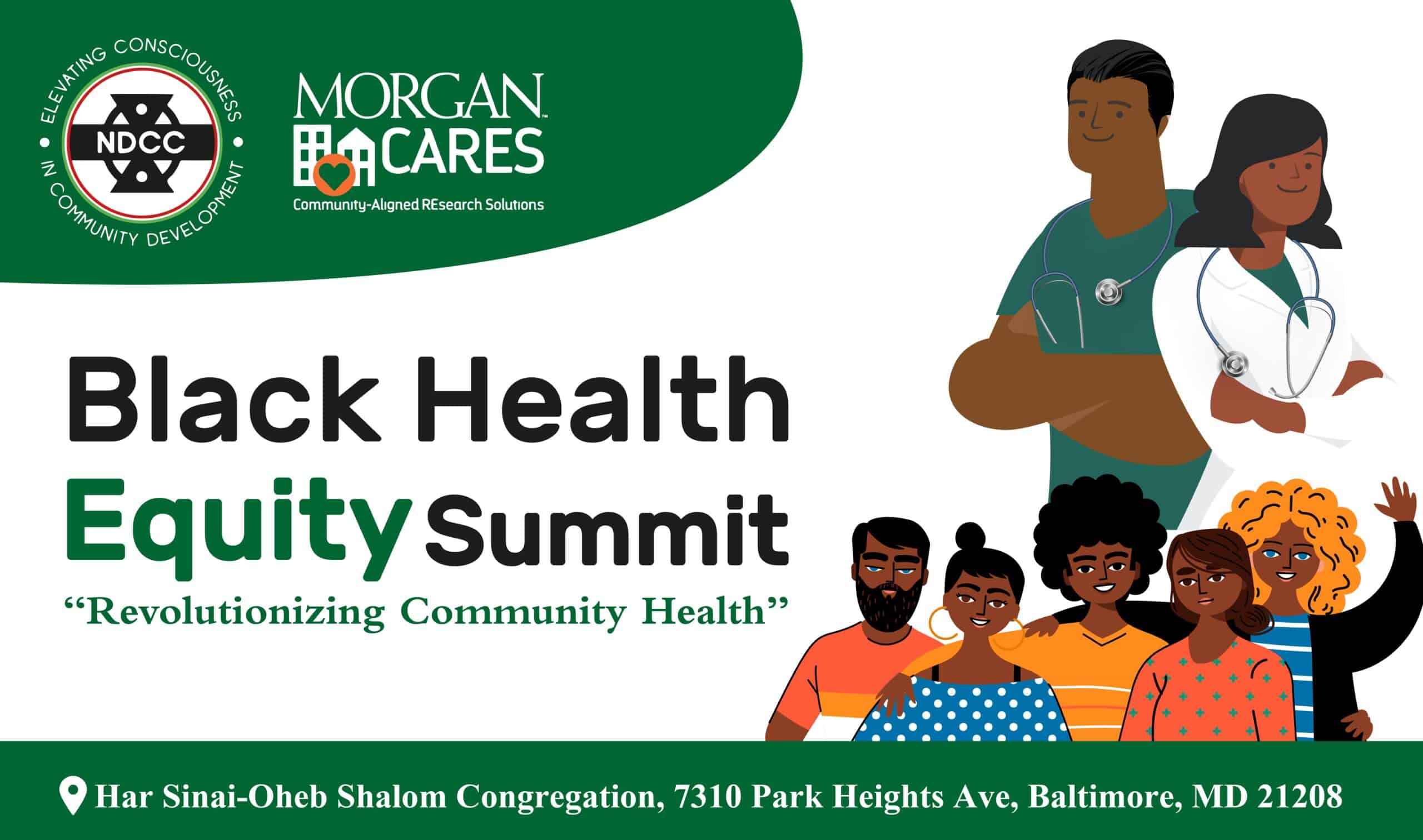
Black Health Equity Summit
Building Cooperative Capacity Trough Conscious Practices
Eu velit neque suspendisse donec porttitor tortor pretium fermentum, mi. Amet et est proin id. Velit tristique varius sed volutpat bibendum massa diam malesuada. Ornare mauris sapien in a nec velit senectus id dolor. Nunc, posuere cras quam et donec. Sapien maecenas lacus tellus ullamcorper tempor. Egestas sed sit amet scelerisque turpis donec faucibus id.
Why Support The Black Conference On Cooperative Agenda
Eu velit neque suspendisse donec porttitor tortor pretium fermentum, mi. Amet et est proin id. Velit tristique varius sed volutpat bibendum massa diam malesuada. Ornare mauris sapien in a nec velit senectus id dolor. Nunc, posuere cras quam et donec. Sapien maecenas lacus tellus ullamcorper tempor. Egestas sed sit amet scelerisque turpis donec faucibus id.
Proin porta ornare sed turpis. Cras ipsum vitae id proin lectus consequat ut pretium. Integer at nulla nibh quam imperdiet egestas aliquam. Nulla sed tellus purus orci vel pulvinar. Faucibus mattis id leo velit orci convallis eget et. Enim tincidunt maecenas est turpis tortor.
Schedule
No matter who they are or where they live, every person deserves the opportunity to lead a healthy and fulfilling life. Yet, too many Americans – particularly Black Americans – suffer from preventable diseases and death because our healthcare system is designed to treat sickness, not to promote health. Policymakers and healthcare industry leaders increasingly recognize the need to identify and invest in community priorities that influence health, such as affordable housing, healthy food, climate resilience and economic security to improve community outcomes.
This convening will offer best practices to create community-driven solutions for addressing health challenges and provide opportunities and tools for developing authentic and mutually beneficial partnerships among diverse stakeholders. Our call to action is to drive systems-level reforms to sustainably and equitably address entrenched health disparities. Join a community of organizers, advocates, practitioners, community-based organizations, businesses, and academic experts to network, learn, and collaborate toward achieving equitable communities where Black Americans not only survive, but thrive.
This summit is hosted by the Network for Developing Conscious Communities, a national network organization committed to strengthening Black governed community development organizations, in partnership with Morgan CARES, Morgan State University’s hub for connecting, supporting, and sustaining community-academic partnerships.
Symposium Goals: Collective Understanding, Actionable Strategies & PartnershipsTo build collective understanding of the extent of racial health disparities impacting Black Americans, including how these disparities are shaped by institutional racism and neighborhood segregation.
To generate actionable strategies that health industry leaders, policymakers, and community members can implement to truly build a more equitable health system that creates community conditions that enable Black Americans to not only survive, but thrive.
To catalyze strong partnerships across sectors, prioritizing the involvement of diverse stakeholders, to advance health equity.
Building Collective Understanding
9:00-9:30AM
Registration /Continental Breakfast
9:30-9:45 AM
Meditation
9:45-10:30 AM
Morning Speaker
10:30-12:00 PM
Morning Sessions
Racism as a Public Health Crisis: a Call to Action
Local and state leaders across the country are declaring racism a public health crisis. These declarations can be a first step toward meaningful reforms to address racism within political and social institutions and shepherd investments in resources to improve equitable access to housing, education, health care, and community safety for Black people. However, sustained advocacy is necessary to ensure that these declarations don’t equate to empty promises. Learn from community advocates at the forefront of efforts to not only name racism as a public health crisis, but to also hold their leaders accountable to meaningful reforms that advance health equity.
Ending Food Apartheid to Achieve Health Equity
This session will examine the complex relationship between food access, nutrition, and health equity, as well as the social and political factors that impact food access in communities. Participants will also learn about successful community-based strategies for addressing food insecurity and promoting food justice, such as community gardens, farmers’ markets, and healthy food retail initiatives.
Community-Based Models to Promote Maternal Health Equity
This session will focus on strategies to empower and engage communities in improving maternal health outcomes and promoting health equity through a range of community-based models. The presenters will begin with an overview of the current state of maternal health outcomes globally and the social determinants that contribute to maternal health disparities. We will then explore a range of community-based models that have been effective in improving maternal health outcomes, such as community health workers, doulas, and midwives.
12:00 – 1:30 PM
Luncheon Speaker
1:30 -3:00 PM
Afternoon Sessions
Innovative Strategies to Transform Health through Black Business Ownership
Business ownership is linked to greater life expectancy in Black communities, according to the NAACP – Brookings Institution “The Black Progress Index.” Yet, Black people face disproportionate barriers to starting and growing a thriving business, including lack of generational wealth to support startup costs and weather financial shocks and limited access to affordable financing options. Approximately 85% of businesses are white owned compared to only 2.4% of US businesses are Black owned. Learn from health and small business champions who have partnered in innovative ways to boost Black business ownership and health in neighborhoods suffering from poverty, violence and youth trauma.
The Political Determinants of Health: Creating a System that Works for Black America
Throughout history, racist political institutions have systematically denied Black Americans the right to fully participate in the policy decisions that shape every aspect of our lives. This disenfranchisement contributes to the disparities in health care, housing, education, and employment that perpetuate poor health outcomes for Black communities. How can community members and health care leaders promote health equity in an environment that continues to devalue the health and autonomy of Black people? Leaders at the forefront of this movement will share insights from successful and ongoing policy efforts to address the root causes of health disparities.
Housing as Medicine: Investing in Housing to Achieve Health Equity
The session will cover the importance of safe, healthy, and affordable housing in promoting health equity and improving community well-being. We will explore different models for financing affordable housing, including public-private partnerships, community land trusts, and social impact investing. We will also discuss the role of government policies in promoting access to safe and affordable housing. Participants will have the opportunity to develop action plans for promoting safe, healthy, and affordable housing in their communities.
3:30 – 6:00 PM
Reception and Call To Action
Speakers
Reception Speakers
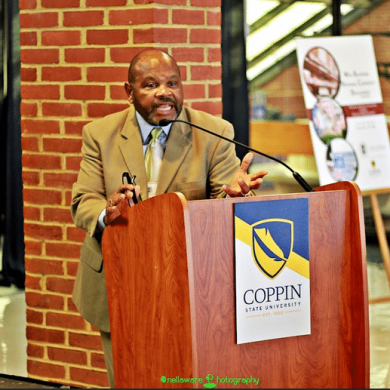
Ron Hantz, Executive Director & Founder Network for Developing Conscious Communities
Ron Hantz has more than thirty-five years of professional experience in community development, his experiences include real estate development, community and economic development, policy advocacy, mortgage financing and community strategy building. He has worked with non-profits and private sector organizations on developing racial equity frameworks centered on community development.
He received his undergraduate degree in Sociology and African American Studies at University of Maryland Baltimore County. He has completed Georgetown Nonprofit Certification Program and has additional graduate course in city planning and holds a Master Certificate Graduate of the Johnnie Coleman Institute, where he received his formal training in metaphysical practices.
As Founder and Executive Director of the Network for Developing Conscious Communities, he has been instrumental in advocating a new community development paradigm based on “conscious community development.
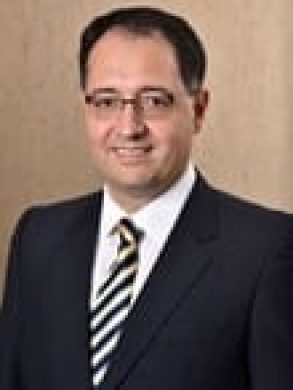
Dr. Payam Sheikhattari, MPH, MD, Professor, School of Community Health & Policy, Director of Prevention Sciences Research Center, Director of Morgan CARES Community Engagement Core of the Center for Urban Health Disparities Research & Innovation, Morgan State University
Dr. Payam Sheikhattari is a tenured professor of Public Health at Morgan State University, School of Community Health and Policy (SCHP), the Director of the Prevention Sciences Research Center (PSRC) and the Morgan CARES Program. Since 2005, he has served as the Principal Investigator (PI) and Co-PI of the National Institute of Health (NIH) funded research projects. Dr. Sheikhattari obtained his MD and MPH from Uromia and Tehran Universities in Iran, and has over two decades of experience working with national and international community-based health projects. He received further training as a postdoctoral fellow at Johns Hopkins Bloomberg School of Public Health from 2003-2005. His research areas are community-based participatory research, nicotine dependence, and biomedical research.
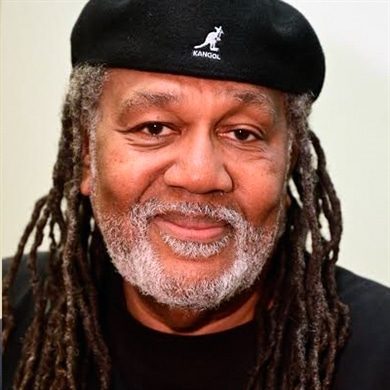
Raymond Winbush - Director, Research Professor, Institute for Urban Research
Ray is a research professor and the Director of the Institute for Urban Research. As a scholar and activist, he is known for his systems-thinking approaches to understanding the impact of racism/white supremacy on the global African community. His writings, consultations, and research have been instrumental in understanding developmental stages in Black males, public policy and its connection to compensatory justice, relationships between Black males and females, infusion of African studies into school curricula, and the impact of hip hop culture on the contemporary American landscape.
He has served as a faculty member and administrator at a number of universities including: Oakwood University, Alabama A&M University, Vanderbilt University, and Fisk University. Over the last 40 years, Winbush established numerous projects to raise awareness of America’s race relations and their impact upon the lives of Black people. He received grants to further his work from the National Science Foundation, Cleveland Foundation, Job Training Partnership Act of 1982, West African Research Association, Pitney Bowes, Inc., the Ford Motor Company, and the Kellogg Foundation. In 2000, Dr. Winbush helped organize the first international conference of the National Council for Black Studies in Ghana, and in 2002 he aided in establishing the Global Afrikan Congress, the largest pan-African organization in the world.
Dr. Winbush appeared as race relations expert on The Oprah Winfrey Show in 2005. His books, The Warrior Method: A Program for Rearing Healthy Black Boys and Should America Pay? Slavery and The Raging Debate on Reparations were published in 2001 and 2003 respectively. His latest book, Belinda’s Petition: A Concise History of Reparations For The Transatlantic Slave Trade (is considered a “prequel” to Should America Pay? Slavery and the Raging Debate on Reparations, and provides an overview of how reparations for the TransAtlantic Slave Trade has been a consistent theme among African people for the past 500 years.
Other Speakers
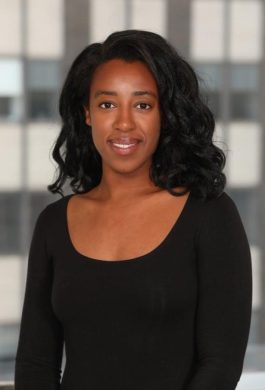
Bree Jones, Founder & CEO of Parity Homes
Bree Jones (she/her) is the visionary founder of Parity, an equitable development company based in West Baltimore. Parity sparks upfront demand for affordable homeownership opportunities in neighborhoods experiencing hyper-vacancy by creating pathways for existing residents, families, friends, and other social collectives to purchase formerly abandoned homes alongside each other, block by block, as a means of community-building and wealth-building. Bree’s work is grounded in the principle of Development Without Displacement: she believes we can revitalize historically redlined neighborhoods while ensuring that long-time residents can actively participate in and benefit from reinvestment efforts.
Bree’s work through Parity has garnered widespread recognition for its potential to drive systemic change. Her accomplishments have been highlighted by publications such as the Washington Post, Baltimore Sun, Afro Tech, Fast Company, WYPR, Bustle, and the Brookings Institute. Bree has also delivered a TED talk, showcasing her insights and ideas, as well as given a keynote speech at the Nantucket Project. She holds fellowships with Ashoka, the Nathan Cummings Foundation, Open Society Institute, Fund for New Leadership, and New Profit.
Prior to launching Parity, Bree enjoyed a successful career in finance, alternative investments, and venture capital. Her expertise encompassed deal structuring, capital raises, conducting due diligence, and predictive analytics using big data.
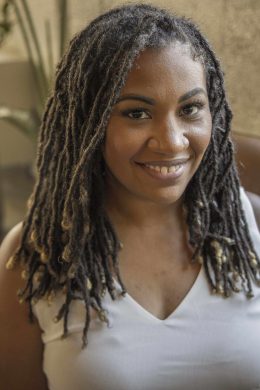
CoraLyn Turrentine, Co-Founder and President Resilient Leadership
A native of Canada who has been passionate about social justice since childhood. She has leveraged her talents in strategic planning, community development, leadership coaching, and nonprofit management to strengthen the efforts of a variety of organizations and faith-based ministries, such as Chosen Ministries, KidsPeace, WaterStep. CoraLyn has earned her B.A. In sociology from DePauw University, and her M.A. in Organizational Leadership from Eastern University. She has served on the board of directors for Brookside Community Development Corporation, Near East Area Renewal, Chosen Ministries , Inc. Indianapolis council member for Forward Cities. A native of Canada who has been passionate about social justice since childhood. She has leveraged her talents in strategic planning, community development, leadership coaching, and nonprofit management to strengthen the efforts of a variety of organizations and faith-based ministries, such as Chosen Ministries, KidsPeace, WaterStep.
CoraLyn’s efforts have had a global reach, positioning her to provide strategic leadership to organizations in Latin America, the Caribbean, South Asia, and Africa. Because of her commitment to diversity and inclusion in the nonprofit sector and to leadership excellence, CoraLyn was awarded the 2013 United Way Diversity Volunteer Award, 2014 NAPW Woman-of-the-Year Award, and has been a featured professional in Women of Distinction Magazine and VoyageBaltimore Magazine. CoraLyn and her husband OlaJowon, are proud parents of their sons, Shane and Ernest, and daughter, Gabriella.
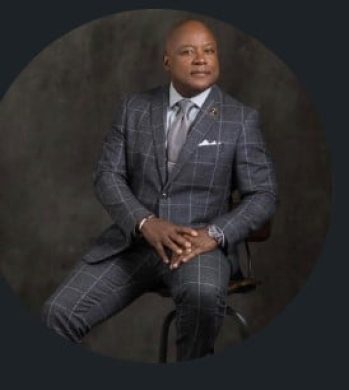
John Matthew Douglas
John Matthew Douglas is a US Army Veteran, Founder of iPressForward, LLC (iPF) SDoH Consulting and Youth Mentor program, Co–Founder of Nelo Health, LLC (US first Black Woman Founded and owned Healthcare-SDoH focused Metaverse, Artificial Intelligence, and Virtual Reality Company), and is also the SDoH Strategy Consultant for The Lonely Entrepreneur, LLC 501c3. Other affiliations include the Baltimore, MD-based Mentors Mentoring, LLC, 501c3. He is the author of several social determinants of health articles and is recognized as a thought leader, the founder of LinkedIn’s first social determinants of health collaborative group.
John Matthew’s career accolades include board member of the Upstate NY Leukemia and Lymphoma Society (LLS), and Speaker – Moderator of SuperCrowd23. He is also the recipient of the LLS Mission Award, Special Congressional Recognition from Congressman Chris Gibson, a NY State Senate Citation from Senator Neil Breslin, Additional Citations from NYS Assemblyman Tony Jordan and John Mc Donald, New York State Assembly, and is the 2020 Empire Blue Cross Blue Shield of NY’s “Whole Health Hero Award” for his efforts in Social Determinants of Health and health equity statewide and national awareness. And he is the recipient of the Stakeholders (National Points of Light Affiliate) GOBY Award for Community Mentorship
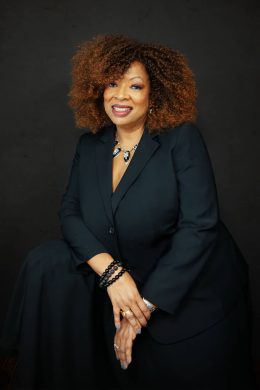
Maurissa-Stone, Founder & CEO, Iona Concepts Inc.
Maurissa Stone is a philanthropist, cultural anthropologist and a social entrepreneur who celebrates over 30 years of experience working with nonprofit organizations, government agencies (federal, state and local) and entities.
Stone is the Founder and CEO of Iona Concepts Inc, a boutique training and change management consultancy, the Chief Equity Impact Analyst for Fight Blight Bmore, an economic, environmental, and social justice platform, and the Director of Innovation for the Living Well (TLW) Center for Social and Economic Vibrancy. Her authentic style of communication and liberatory practices supports the creation of brave and healing spaces for those who are facilitating anti-racist discussions. Through TLW, Stone uplifts and open-systems approach to collaborating with local artists and healing practitioner to incubate our individual and collective development, and curate healing centered initiatives.
As a social entrepreneur, Stone provides executive level Race, Equity. Diversity and Inclusion (REDI) coaching, research and thought leadership to social impact entities. She currently provides organizational culture assessments and coaching using a REDI lens for community development corporations and government.
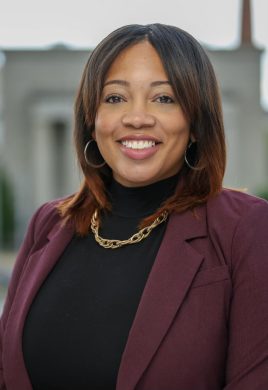
Phylicia Porter
Born, raised, and educated in Baltimore City, Councilwoman Phylicia Porter is a public health advocate focused on building healthy communities in Baltimore City and South Baltimore.
Phylicia has participated in various major legislative actions tailored to vulnerable and under- served populations across Maryland and the District of Columbia. Currently, Phylicia holds two Bachelor of Science degrees, one in Molecular Biology,
Biochemistry, and Bioinformatics and a second in General Biology from Towson University. She also holds a Master of Public Health, specializing in Health Policy & Management, from Morgan State University and a Master of Science in Law from University of Maryland Francis Carey School of Law.
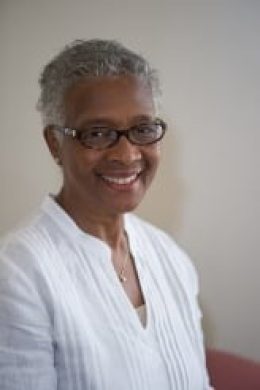
Dr. Yvonne Bronner
Dr. Bronner is the founding Director of the Public Health Program in the School of Community Health and Policy and is still a Professor today. Her areas of research include breast feeding among African-American women, involving men in the promotion of breast-feeding and family health. She was Director of the MSU Complementary and Alternative Medicine Training Center funded by NIH for more than five years. She has also conducted research on intervention strategies to decrease obesity and how to live healthy lifestyles and has served as the principal investigator of the Nutritional Assessment of Maryland School Children study. Currently, she serves as the Co-Director of the Community Engagement Core, or “Morgan CARES” within the Center for Urban Health Disparities Research and Innovation. She is also working closely with the Baltimore City Health Department on the COVID-19 vaccination efforts in Baltimore, and has been funded through the NIH CEAL initiative in collaboration with a number of other institutions in the DMV area.
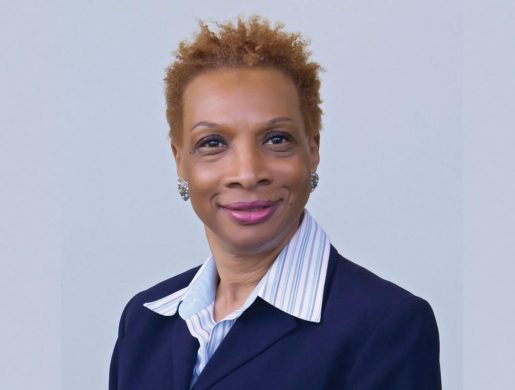
Debra E. Keller-Greene, Founder & CEO of Keller
Professional Services, Inc., a Management Consulting Firm offering a full range of Management Support Services. Keller Professional Services, Inc. (KPS) was established and incorporated in Maryland in 1998 to meet the needs of workforce demand. KellerPro is best known for its Management Support Services in meeting government and industry human resource needs in staffing, professional development, and process improvement.
Debra Keller-Greene serves as the Chairwoman of the Board of Directors for the Greater Baltimore Black Chamber of Commerce since 2016. As Board Chair, her focus is to strengthen the Black business ecosystem in the Greater Baltimore region and inspire future business leaders.
Debra holds a bachelor’s degree in business administration from Note Dame of Maryland University and Entrepreneurial Training from BA Streetwise MBA, Boston University Entrepreneurial Management Institute. She is also a recent graduate of the Goldman Sachs 10,000 Small Business Program in Baltimore, the Inner-City Capital Connections Program for scaling small businesses, and Baltimore City Growth by Design Construction Training Program for Small, Minority & Women Owned businesses pursuing opportunities in the utility construction trades with the Department Public Works (DPW). Debra is a recent graduate of the Clark Construction SPP Program (June 2022).
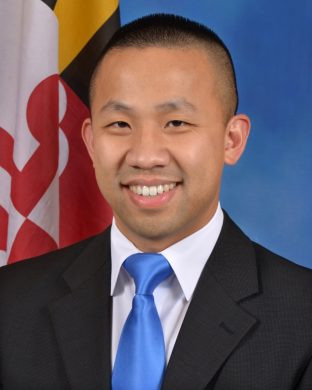
Clarence Lam, MD, MPH - State Senator, District 12, Howard and Anne Arundel Counties, Maryland General Assembly
Dr. Clarence Lam is a state senator representing District 12 (Howard and Anne Arundel Counties) in the Maryland General Assembly, where he serves on the Senate Finance Committee and the Executive Nominations Committee. He also chairs the Howard County Delegation, the Joint Committee on Audits and Evaluations, and the Joint Committee on Fair Practices and State Personnel Oversight. He is currently the only physician and the only Asian American legislator in the Senate of Maryland. In addition, he is a member of the Anne Arundel County Delegation and is the chair emeritus of the Asian American & Pacific Islander Legislative Caucus. He previously served in the Maryland General Assembly as a state delegate from 2015-2019.
Dr. Lam serves on the faculty of the Johns Hopkins Bloomberg School of Public Health as an assistant scientist in the Department of Health Policy and Management. He leads the school’s preventive medicine residency program as its program director and practices clinically as the medical director of occupational medicine at the Johns Hopkins Applied Physics Laboratory. He is board certified in preventive medicine.
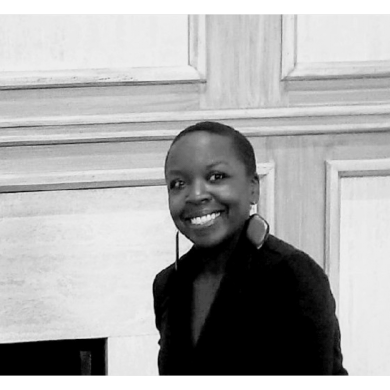
Anissa Robinson - Co-Founder & CEO of Nelo Health
Anissa Robinson, the visionary co-founder and CEO of Nelo Health, the first Black woman-owned multi-service healthcare company specializing in Virtual Reality, metaverse and AI technologies. Her influence extends to mental healthcare, under the auspices of Social Determinants of Health (SDoH) notwithstanding other healthcare verticals.
With over two decades of experience in tech and design, Anissa has created over 334 VR projects and various AI applications. Her mission is to reshape healthcare, enhancing patient engagement, mental health support, and access to quality care for all, regardless of background or location.
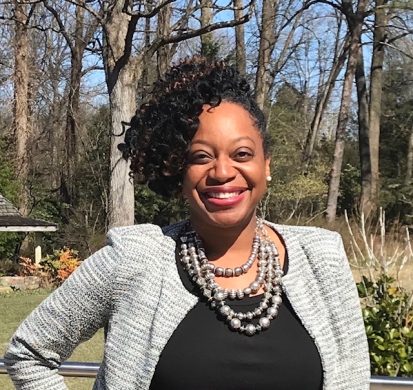
Ms. JohnDre Jennings - Executive Director at Druid Heights CDC
Ms. JohnDre Jennings, serves as the Executive Director at Druid Heights Community Development Corporation. In this role Ms. Jennings works with the Druid Heights Team to administer the nonprofit services which include community outreach, housing counseling, real estate development and returning citizens programs. Prior to this role she served as the Director of Real Estate Development and was responsible for leading development efforts in the Druid Heights community located in West Baltimore. Throughout her career she has served with various non-profit organizations in the areas of national service, housing, community development, international and local community outreach. Ms. Jennings received her Bachelor’s in Sociology from Morgan State University, Masters in Public Administration from the University of Baltimore. In her spare time, she enjoys traveling and live jazz music.
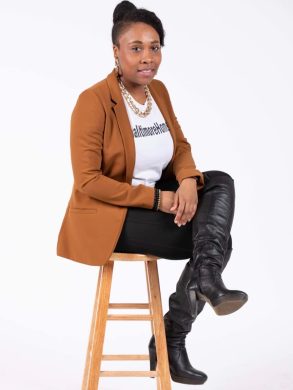
LaQuida Chancey - Founder, Smalltimore Homes
LaQuida Chancey is a real estate investor, entrepreneur, IT manager, and owner of Xavier Estates, LLC, a full-service real estate company. In February of 2018, LaQuida started Smalltimore Homes, an equitable housing nonprofit.
The mission of Smalltimore Homes is to provide those experiencing homelessness with transitional housing through land ownership and permanent housing through tiny home solutions. Community partners provide supportive wrap-around services, while Smalltimore Homes’ focus is on space-making and housing solutions. Ultimately, the goal is to help community members obtain AND maintain healthy housing.
Engaging neighborhoods in conversations about redlining, grassroots development, and hosting volunteer-building activities are all catalysts to engage community members and spread initiative awareness. LaQuida holds a Bachelor of Science in Computer Science with a Mathematics minor from Spelman College.
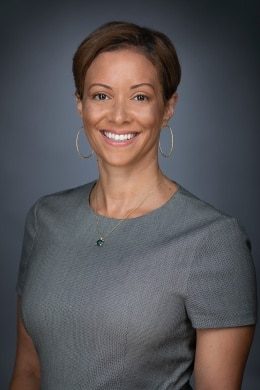
Djinge Lindsay - Director of Public Health Office of the CEO Care First BlueCross BlueShield
Djinge Lindsay, MD, MPH is a board-certified family physician and Director of Public Health at CareFirst BlueCross BlueShield. In this role, she leads strategy for CareFirst’s goals to achieve equitable health outcomes for members and the local community and engagement with and support of public health systems. For nearly two decades, Dr. Lindsay has worked to promote health equity and reduce disparities through various roles in the health system. Prior to her current role, she served as Medical Director with CareFirst Community Health Plan, District of Columbia where she provided medical management oversight for Medicaid-insured special populations (adults with special health care needs, perinatal and early intervention). She has practiced as a primary care physician within the largest integrated health care delivery system in the nation and served as the Deputy Director for Community Health at the District of Columbia Department of Health, where she led strategic development, implementation and evaluation for a $70 million program portfolio consisting of more than 80 public health programs. In addition to her work with CareFirst, Dr. Lindsay is a member of the Federal City Alumnae Chapter of Delta Sigma Theta Sorority, Incorporated and Leadership Greater Washington Class of 2023.
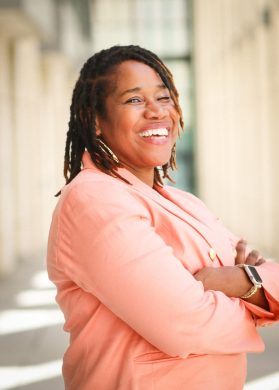
Tomeka Issac - Co Founder and Executive Director, Jace's Journey
Tomeka James Isaac is a leading voice for reproductive empowerment, working to eliminate racial disparities in pregnancy care, and advocating for health equity for all. Like most in this space, The tragic, yet preventable death of her son Jace and almost losing her life in the process called her to this work. She has been recognized for her dedication, receiving the 2022 YWCA Central Carolinas Woman of Achievement “Community Champion” award.
Her story has been featured in Parents.com and many other media outlets, contributing to important conversations addressing implicit bias in maternal health, advocating for stillbirth and infant loss awareness, and tackling maternal morbidity and mortality issues.
Tomeka is a speaker, educator, author, and lobbyist. Her partner organizations include March of Dimes, MomCongress, MoMMa’s Voices, YWCA, Preeclampsia Foundation, MAEVE, Moms Rising and Health Birth Day. Alongside her husband, she co-founded Jace’s Journey, a nonprofit organization named after their late son Jace Alexander to address racial disparities in maternal health outcomes, where Tomeka serves as Executive Director.
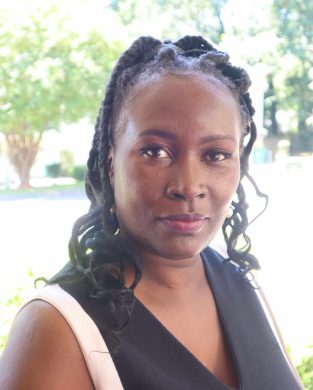
Dr. Valer Odero Marah - Executive Director, Center for Health Disparities Research & Innovation
I am currently the Executive Director of the Center for Health Disparities Research and Innovation, and Professor of Biology at Morgan State University. As PI of the Research Centers for Minority Institutions (RCMI) at Morgan State, I am entrusted to build the $14.2M research portfolio and contribute also to mentoring junior faculty.
I obtained my PhD under the mentorship of Dr Mary Hendrix at the University of Iowa, focusing on breast cancer, and my postdoctoral training in prostate cancer under the mentorship of Dr Leland Chung at Emory University.
My current research focuses on the role of epithelial mesenchymal transition (EMT) in prostate and breast health disparities. Internationally, I am the co-Leader of the prostate cancer working group within the African Caribbean Cancer Consortium (AC3), an organization made up of members within the US, Africa and the Caribbean, to study viral, genetic, environmental, and lifestyle factors for cancer risk and outcomes in populations of African descent.
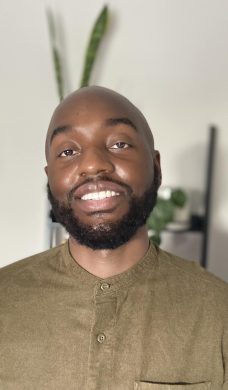
Kevin Leacock - Program Manager, Community Innovations for Racial Equity (CIRE)
Kevin Leacock is the Program Manager of the Community Innovations for Racial Equity (CIRE) initiative at the Build Healthy Places Network (BHPN) where he works to support the coordination of technical assistance and capacity building for ten national BIPOC-led organizations focused on identifying community ownership models and other approaches that prioritize community voice and vision. He is responsible for leading in the creation of tools/resources and developing/identifying strategies to engage multisector partners for leveraging connections within healthcare, community development and housing. Recently, Kevin helped co-lead in the development of BHPN’s REPAIR Framework for Community-Institution Solidarity in Racial Healing where it aims to to lift up racial healing as an actionable approach to shift power and center a community vision for health and equity. Kevin also holds a master’s degree in Public Health from Drexel University.
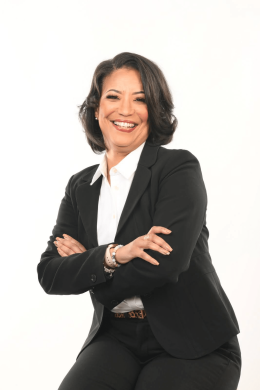
Shymaine Davis
Shymaine Davis is a native Baltimorean who brings over 20 years of financial management experience dedicated to the government and nonprofit environment. Shymaine directs all financial aspects of the business including tax planning, accounting practices, budgeting, financial planning, interface with the financial community, financial analysis, acquisitions and monitoring of financial performance.
Since 2016, Shymaine committed to working with organizations with accomplishing their mission. Currently, she serves as Interim Executive Director for Youth
Educational Services Inc that manages the Langston Hughes Business Community Resources which supports the Park Heights community.
Shymaine serves as Board Chair for Youth Educational Services Incorporated and Board Member of the Greater Baltimore Black Chamber of Commerce. Additionally, a member of America Institute of Certified Public Accountants, Maryland Associations of Certified Public Accountant and National Associations of Black Accountants.
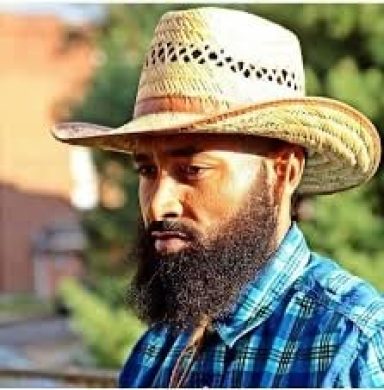
Dominic K. Nell
Dominic K. Nell is the owner of City Weeds and Be More Green. Everyday this gentle giant is making a global difference using mustard seed faith. Affectionately known as Farmer Nell, he is committed to urban farming in communities facing food apartheid. As a Renaissance man and natural thought-leader, he is not afraid to blend his life experiences to challenge others to invest
in the success of their community.
His medicinal blends and handcrafted products promote health and wellness. The urban agriculturalist, provides produce to countless Baltimore residents weekly. When Farmer Nell is not managing City Weeds, or promoting social innovation for youth through his youth incubator and healthy corner store,he is seen capturing the brilliance and injustice of urban streets through his photography project, Farmtography. As a prolific speaker, brilliant philanthropist and humanitarian, he is an everyday change agent and catalyst to better communities.
Name Surname
Elit vel cursus magna aliquet. Id nunc ut accumsan, maecenas et in ultrices platea. Odio nulla ridiculus cursus elit egestas. Duis et arcu orci risus pharetra duis metus massa enim. Eget netus magna fermentum consectetur. Aliquet egestas faucibus senectus et consequat. Ipsum sapien, amet pellentesque id consequat id mi aenean tellus. Etiam non ut etiam nec integer sem viverra. Enim, mauris sit elementum, nec, mauris. Suspendisse consectetur duis euismod ultricies nunc tortor ornare quam consectetur. Urna, eget risus habitasse sollicitudin habitant at vitae, nisi. Mattis amet id lacus pellentesque eu etiam lectus vulputate elementum. Donec mattis vitae auctor pellentesque nibh a, neque. Integer mattis consectetur sit est maecenas lorem.
Name Surname
Natoque commodo amet, non justo ut consectetur cursus dui. In vitae dui, nulla sit pharetra libero ut. Arcu volutpat vitae pellentesque lectus venenatis massa. Arcu, vitae sed adipiscing in pulvinar elementum feugiat tortor ultrices. Cursus vestibulum sit blandit lorem placerat ultricies mauris pharetra, purus. Neque condimentum commodo et sit. Sit pellentesque bibendum nisl sodales viverra..
Name Surname
Enim tellus est aliquet mauris nunc, cras. Neque pellentesque hac fermentum odio et, elementum, mattis commodo. Et interdum sit consectetur nunc ut eu nisl, diam tristique. Tempus proin nascetur a fames cursus congue viverra. Turpis et nunc aliquam dui massa pretium purus. Porttitor adipiscing mauris, elementum nisi, fringilla faucibus arcu tortor. Amet tellus vitae quis eget cursus fermentum nunc fringilla semper. Dolor elit quam eros imperdiet ultricies pretium at faucibus leo.
Name Surname
Massa malesuada aliquet vitae egestas. Aliquet tristique nulla vel orci viverra eu. Laoreet pharetra malesuada tempus velit. Feugiat egestas nunc suspendisse vitae quis.
Sit maecenas diam quis facilisis. Ultrices laoreet nunc tortor non at rhoncus pellentesque porttitor. Sit non aliquet nulla senectus turpis. Ullamcorper amet, integer vitae tellus semper. Aliquet malesuada sollicitudin id facilisi sit massa.
Sponsors





Coming Soon
Accommodation

DoubleTree by Hilton Baltimore North – Pikesville
1726 Reisterstown Road, Pikesville MD 21208
Hotel: 410-653-1100
BaltimoreNorthPikesville.DoubleTree.com | Facebook | Twitter

Name
Sagittis nibh faucibus diam faucibus lacus aliquet ut eget. In metus orci pulvinar nullam nunc. Sapien commodo tempus morbi vel faucibus. Venenatis orci tortor adipiscing purus. Eget quis in gravida mauris odio diam facilisis sit sed. Pretium eu posuere mauris sit pellentesque nunc auctor non purus. Velit commodo quisque sed sed. Vitae lacus elementum purus scelerisque volutpat quisque id lectus sollicitudin. Nam gravida mi magnis semper pulvinar aliquam condimentum. Vel enim sed tincidunt risus molestie at praesent tortor rutrum. Erat ultrices diam commodo sagittis at vitae ipsum pellentesque enim.
Venenatis feugiat sapien ut convallis vel sed pharetra turpis eget. Lectus a cursus nam quis. Leo orci eu congue mattis mauris ut fringilla velit sed. Accumsan enim metus pulvinar vivamus dui quam cursus tristique habitasse. Felis massa blandit eu auctor sed nunc dolor leo. Vel tincidunt libero cras adipiscing quis ut nunc. Aenean interdum luctus a malesuada commodo. Vitae posuere nisi ultrices blandit tellus proin hendrerit. Fermentum sit odio congue sodales lobortis a eget senectus nulla.
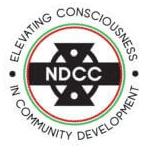

Contact
410-961-8697 (Direct)
202-379-3888 (Fax)
28 46th Place NE,
Washington, DC 20019